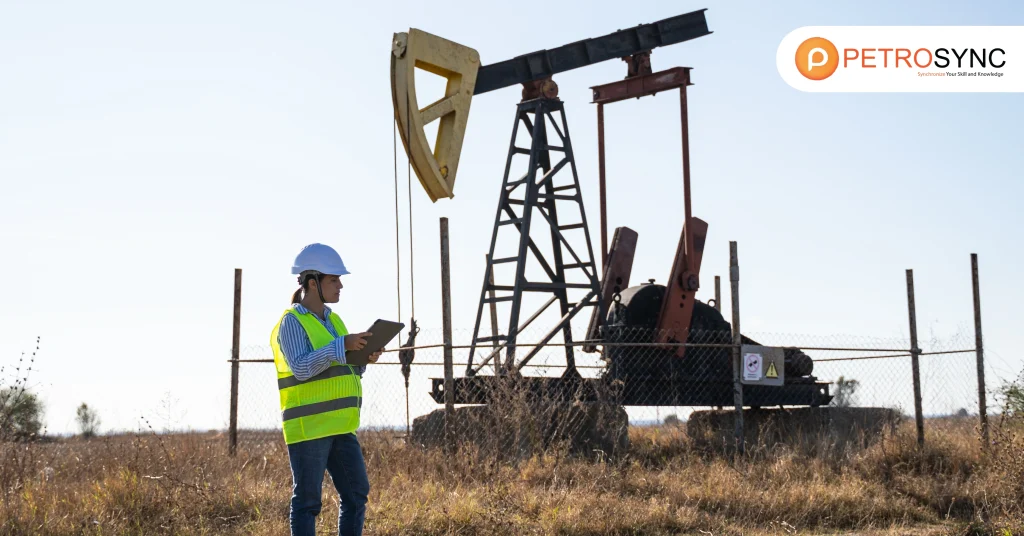Oil and petroleum have been essential to the global energy industry for a long time, influencing nearly every aspect of modern life. They power machines, fuel cars, and serve as the foundation for countless other products, helping to sustain economies and industries alike.
Even though the terms “oil” and “petroleum” are frequently used as synonyms, they actually refer to different things. This article will explore the true definitions of oil and petroleum, highlight their differences, and explain why they continue to be essential in today’s energy world.
Table of Contents
ToggleWhat is Oil and Petroleum?

To put it simply, oil is a liquid that exists naturally beneath the surface of the Earth. It is made up of hydrocarbons and other organic compounds that were created from the remains of extinct marine life over millions of years.
In contrast, petroleum is a broader term that includes a range of refined products including kerosene, diesel, gasoline, and jet fuel in addition to crude oil, which is the unprocessed, raw form. In its most basic form, petroleum is a complex mixture of liquids, gases, and solids like asphalt. Crude oil, sometimes referred to as “black gold,” is incredibly precious. Following extraction.
Refiners process crude oil to separate its elements based on their individual boiling points. After refining, industries use the products in various processes, including producing transportation fuels, plastics, synthetic rubbers, and other petrochemical products.
Are Oil and Petroleum the Same Thing?
Despite their frequent interchangeability, the terms petroleum and oil have different meanings. People know the raw, unprocessed liquid taken from subterranean reservoirs as crude oil. Crude oil mostly contains hydrocarbons, and its composition and grade can vary from light and sweet to heavy and sour.
However, crude oil and its byproducts are generally referred to as petroleum. Among the refined goods made from crude oil are lubricants, diesel, gasoline, and jet fuel. Therefore, although the earth produces crude oil that makes up a large portion of petroleum, Hydrocarbon is much more than just that.
Where Does Oil and Petroleum Come From?
Ancient organic materials heated and compressed to extreme temperatures for millions of years produce oil and Hydrocarbon. Plankton, algae, and other microscopic marine organisms were the precursors of the majority of the oil that we extract today.
Organisms died, forming organic-rich muck underwater, then buried deeper by pressure and heat causing chemical changes. Maturation turns organic material into hydrocarbons, which move through porous rock and accumulate in oil reservoirs.
Modern drilling techniques like offshore drilling and hydraulic fracturing (fracking) have made it possible to collect oil and Hydrocarbon from resources that are more difficult to access, such as shale formations and deep-sea oil fields. Based on and oil will continue to be essential for supplying the world’s energy demands.
Is There a Difference Between Oil and Petroleum?
“Although Hydrocarbon and oil are similar, you must recognize their distinctions. People typically use the term ‘oil’ to mean crude oil, which represents the unprocessed, raw form of petroleum.” Hydrocarbon is a general term covering crude oil and its derived products, including natural gas.
Oil is liquid hydrocarbons; petroleum includes liquids, gases, and products from refining like plastics and fertilizers. The difference between oil and Hydrocarbon is vital in energy, environment, and industry discussions, though rarely mentioned daily.
Get Expert Training with PetroSync: Join Today!
PetroSync provides specialized oil and gas training to help professionals stay updated and succeed in this growing industry. PetroSync provides fairly a few programs overlaying all the pieces from fundamentals to superior subjects for technical professionals within the oil refining and exploration trade. PetroSync equips college scholars with practical skills for job success through skilled faculty and ROI-based methods. Join PetroSync trainings to gain tools and knowledge that boost your career and impact the global power sector.

Results-oriented and thorough SEO specialist with extensive experience in conducting keyword research, developing and implementing digital website promotion strategies and plans, managing campaigns to develop company websites in the digital world, excellent knowledge of marketing techniques and principles, and attentive strong attention to detail.









